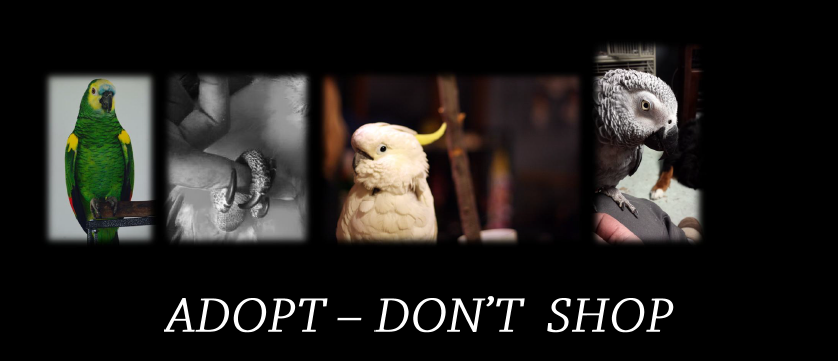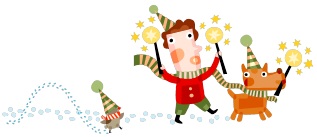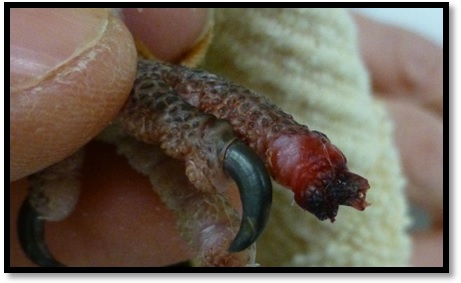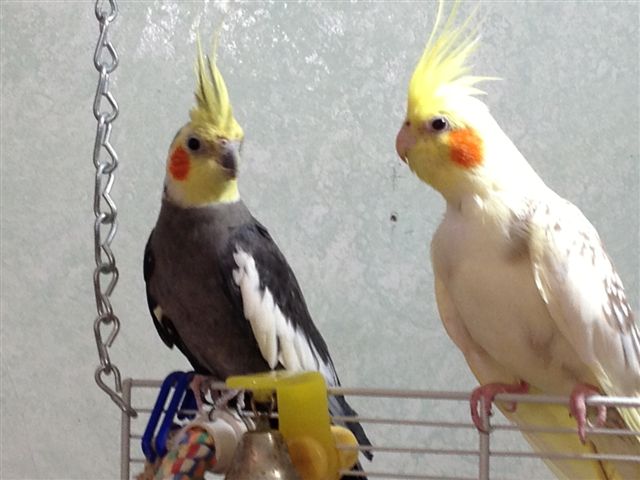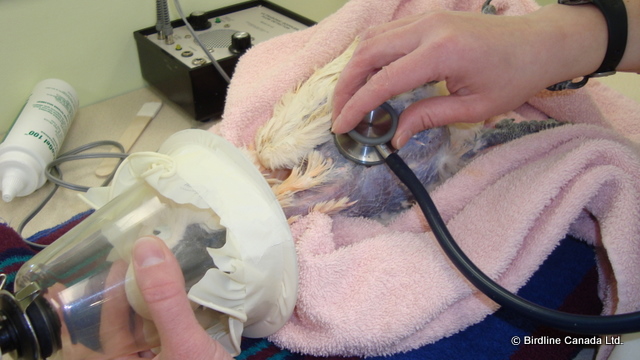Keeping your bird merry (and safe) at Christmas
By Leticia Materi, PhD DVM
The holiday season is a time of cheer and good will, entertaining, decorations, and tasty goodies. However, it is also a time of disrupted routines, compromised eating habits, lack of sleep, and chaos!
We humans can easily take a moment for ourselves during the hustle and bustle of the holidays: grab a nap, regulate how much eggnog we drink, and make plans to start exercising in the New Year. But what about our feathered friends? How can we protect them from holiday overload? The following outlines some steps you can take to ensure that your pet has a happy holiday.
- Maintain your pet’s routine. The holidays often bring many visitors to our home and our guests may inadvertently stress our pets with excess attention or wanting to see ‘Polly’ do her trick one more time. Keep handling to a minimum and watch your pet closely for signs of agitation and stress such as trembling, hiding, altered appetite or vocalizing. If hosting a party, keep your bird caged and in a quiet, comfortable, and secure area of the house away from visitors. Try and maintain as normal a routine for your pet as possible during the holidays – particularly paying attention to bedtimes. Lack of normal sleep routines can cause stress and behaviour changes in your pet.
- Watch your pet’s diet.We all indulge in extra treats during the holidays and want to share the feast with our pets but too much of a good thing can be quite harmful! Keep an eye on family and friends who all want to give your pet ‘one little piece’ of a Christmas treat. Many holiday treats contain items that can upset your bird’s digestive tract or even be fatal! It is recommended that the following items be avoided at all times:
Chocolate – This item is plentiful during the holidays but can cause vomiting and diarrhea or even seizures and death at high doses.
- Avocado – While we humans might enjoy this in a dip, avocado can cause heart failure in birds.
- Onion & Garlic – Ingestion of onion or garlic can lead to vomiting and diarrhea in birds. If eaten in excess, onion toxicity causes red blood cells to burst resulting in severe anemia, respiratory distress, renal failure and eventual death.
Alcohol and Caffeine – While no responsible bird owner would ever consider giving their pet an alcoholic drink, free roaming birds can be very curious about unattended cocktails. This can quickly lead to alcohol poisoning. Small birds can easily fall into glasses of liquids when trying to sneak a sip which can lead to accidental drowning. Caffeinated drinks such as coffee, tea, and soda pop are popular human drinks but can be dangerous to birds. Caffeine alters cardiac function by disrupting the normal rhythm of the heart. This can have deadly consequences.
- Salt – Many snacks contain excess salt and this can lead to kidney dysfunction and swelling of the brain. Keep salty treats away from your bird.
- Apple seeds – Seeds from apples, as well as those from cherries, peaches, apricots, and pears, contain the deadly poison cyanide. Many fruits have also been exposed to pesticides and fungicides. If giving fruit, thoroughly cleanse and core them, use organic items, and lean towards antioxidant rich berries and pomegranates.
- Remember, a piece of treat that appears small to a human is relatively large compared to a 35 gram budgie! Moderation is always the key to treats.
- Safety proof your home.Birds are naturally curious and are easily attracted to bright and shiny Christmas ornaments. Screening your home for danger can prevent an emergency visit to the veterinarian.
The paint found on many ornaments could contain metals such as lead or zinc which cause severe gastrointestinal distress, neurological dysfunction, and death if ingested. Broken glass from fragile ornaments can result in cuts and punctures.
- Many pets have required emergency surgery to remove strands of tinsel from the crop and intestine. Keep birds away from this product.
- The tree itself – Some companies will treat fresh trees with a fire-resistant coating which is toxic to birds. Fake trees have metal in the branches. Do not allow birds to chew on Christmas trees.
- Glue – various kinds: While there are some types of glues that are marketed as non-toxic, most products do not state what type of glue they have used. It is better to assume that any glue product can be harmful to your bird.
- Poinsettias: While not considered a poisonous plant, poinsettias leaves contain crystals that are directly irritating to the mouth, crop, and rest of the digestive tract and can lead to nausea and vomiting.
- Potpourri: Fumes from potpourri are toxic to birds. Remember, their respiratory tract is very sensitive to fumes and smoke. Do not use potpourri around your bird or move your bird to another room.
Electrical cords should be kept out of reach. A bite through a live wire could lead to severe burns and/or electrocution.
- Inhaling fumes from scented candles and incense can cause respiratory distress.
- The ink from wrapping paper could potentially be toxic so don’t use wrapping paper for toy making. Ribbons and bows can easily wrap around your bird’s neck, legs, or toes leading to severe injuries.
- Cinnamon cloves: Cinnamon appears to be safe for birds. However, each bird can react differently to new foods so if you are introducing any new items to your pet, start slowly and monitor droppings closely. Items such as walnuts, almonds, and pine nuts contain healthy fatty acids and would be recommended for most birds as a treat.
Mistletoe, holly, and poinsettias should be kept out of reach as ingestion of these plants can lead to severe gastrointestinal upset, organ damage, or death.
- Keep fireplace grills in place to prevent burns or the ingestion of ashes.
- Christmas trees can be knocked over by large parrots attempting to land. This could lead to severe injuries as well as a large mess to clean up!
- It is very important that birds be fully supervised when out of their cages. It does not take long for them to find trouble when owners leave the room for ‘just a minute’.
- Check your pet every night. Before heading off to bed, take a moment to check on your bird. Ensure that there is food and water available to them, that the cage is securely closed, and that your pet seems to be resting comfortably. Droppings should be monitored daily to ensure that your bird is eating normally and that there are no signs of digestive upset.
If you are unsure as to the safety of a particular item or food product, consult a veterinarian or call poison control. As the saying goes: An ounce of prevention is worth a pound of cure! With proper precautions, both you and your bird can have a very merry Christmas!
Respectfully submitted,
Leticia Materi, PhD DVM
Calgary Avian & Exotic Pet Clinic
Tel: 403-240-3577

